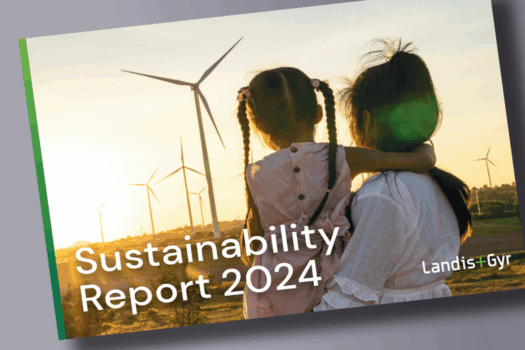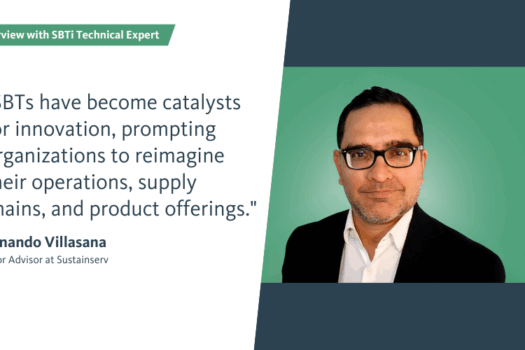The GreenBiz conference, the annual gathering of sustainability professionals new and old, convened in sunny, brisk Scottsdale, Arizona. Sustainserv Managing Partners, Stephan Lienin and Matthew Gardner, along with Sustainserv Senior Director, Jeff Gowdy, represented the firm. Here are our key takeaways:
The Mainstreaming of Science Based Targets for Nature (SBTN)
SBTN and its framework colleague, TNFD (Taskforce on Nature related Financial Disclosure), moved from an emerging breakout topic to the main stage. Focusing on five key issues – biodiversity, climate, oceans, land, and freshwater – SBTN uses indicators for the State of Nature (SoN) as metrics against which companies can track their performance and ideally set goals for short and long-term performance. For example, there are already SoN indicators to measure water availability, water quality, land degradation, natural ecosystem extent, and species extinction risk. Such an approach, that leverages contextual data to allow corporations to monitor their performance in areas that we all would agree are important, is a critical next step in assessing, prioritizing, measuring and ultimately mitigating our impacts on the world.
Front and Center: Corporate Sustainability Reporting Directive (CSRD)
The sustainability world has more letters than a can of Campbell’s Alphabet Soup. But right now, if any of the hundreds of acronyms stand out more than others, it is CSRD, the EU’s recently launched Corporate Sustainability Reporting Directive. The CSRD is intended to require companies to take a thorough and broad attempt at identifying what issues are most relevant to them, and to disclose in some detail the risks, opportunities, policies, and metrics. And it is not just any disclosure here, but rather companies must disclose this information alongside their financial reporting with a level of rigor and accuracy that only third-party assurance can provide.
In our opinion
The most striking thing about CSRD, and the reason for the fervor surrounding the topic at GreenBiz, is the fact that non-EU companies will be subject to the law. If you are a non-EU company generating revenue in the EU and/or with a division or subsidiary in the EU, you will also be required to participate. So, US companies are currently gearing up for the process to adhere to this new law. They are starting with a double materiality process as required, followed by a structured gap assessment against their current disclosures, and culminating with their first CSRD-compliant disclosures in the next 2-5 years. And we will be seeing more of this – regional entities driving global corporates behaviors – in the coming years as the California GHG (Greenhouse Gases) emission disclosure rules take effect, and other regional rule making bodies take steps to bring corporate disclosures and practices into alignment with their local priorities, which in most case are global priorities for many. In the absence of coordinated global action, or national action in the case of some of the largest global economies (ahem, USA) this may be the most effective path forward.
The People Factor
Throughout GreenBiz, there was a continued message about People couched in many terms such as health, well-being, engagement, diversity, inclusion. Why? Because it is very clear that to reach measurable and provable sustainability, we must consider, encourage, and nurture the people who make this all possible. We must think about intergenerational issues – what resonates with and motivates Millennials is vastly different than what motivated prior generations. In our defense, we now are doing a better job in addressing the obvious connections between mental well-being and optimal performance. But it goes deeper. We see the damage that the extreme polarization of society, politics, and the media is wreaking on our employees, ourselves, and the workplace. The solutions are both simple and complicated, easy, and difficult. But we need to address these issues if we are going to make tangible and meaningful progress towards our collective goals.
Here is one thing we CAN do. For years, we have empirically known that a more engaged workforce leads to better outcomes for the companies they work for. What drives engagement? What do people really care about? If engagement leads to better performance, why are we not explicitly including conversations about the passions and interests of our employees in our strategic planning and ESG-related processes? If people really care about something, why are we not leveraging this to drive business performance?
We propose that companies do exactly that – introduce a dimension into your strategic planning processes that identifies what your people clearly care about and integrating that into your planning processes. Through this process, “Passionate Materiality” we can ascertain what makes our people tick, and reap the benefits of an engaged, caring, motivated and, yes, passionate, workforce.
We welcome your feedback on our key takeaways and to hear yours.
Get in touch. We are happy to tell you more about it.







